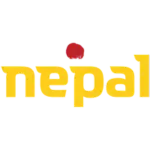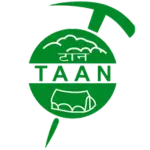Travel Responsibly
sustainable & fair
Responsible travelling
In the 60 years since Nepal opened its borders to outsiders, tourism has brought many benefits, in terms of wealth generation, employment opportunities, infrastructure, health care, education and transport. However, the massive influx of trekkers and travellers has also brought problems in the form of environmental degradation, social breakdown and the loss of traditional culture.
The positive effects of tourism are plain to see. Sadly, the negative effects are also clear. Begging is wide spread and litter chokes mountain trails. Forests are being cut down to provide firewood to keep trekkers supplied with warm showers and hot meals.
There are endless discussion among trekkers about the most environmentally sensitive and culturally rewarding way to trek. Some trekkers make donations and others volunteer. But what is certain is that making a positive contribution is as much about the way you behave as the money you spend.
The following sections cover some of the issues you will need to think about. Or drop for more information into the Kathmandu offices of Kathmandu Environmental Education Project (KEEP).
Human Waste Disposal
Where there is a toilet, please use it. Where there is none, bury your waste. Dig a small hole at least 100m from any water course. Cover the waste with soil and rock. In snow, dog down to the soil. Ensure that these guidelines are also applied to portable toilet tents.
Toilet paper should be buried, or preferably burned, not left on the surface. If you can get used to the local ‘hand and water’ technique, even better. If you use toilet paper in a mountain lodge, put your used paper in the container provided.
Waste
One of the pressing problems in Nepal is the large amount of trash that trekkers generate in the hills and mountains. Fortunately, there are things you can do to prevent creating waste.
Unpack as much as you can, especially those items that cannot be disposed properly in villages. The huge pile of bottles at Shyangboche airport is a dramatic example of why you should do this.
Another major thing you can do, is using the drinking water stations to refill your bottle in stead of buying disposable water bottles.
Campfires & Hot Showers
Using firewood for heating or cooking if prohibited in all of Nepal’s national parks and reserves. The use of open fires should be discouraged, even where it is not directly prohibited. Firewood gathering is the main cause of deforestation in the Himalaya and wind-blown embers are a major cause of forest fires.
At high altitude, ensure that you and your fellow-travellers wear clothes that keep you warm enough. Heating in mountain lodges is generally provided by metal burners fuelled by animal dung or agricultural waste. But wearing warm clothing will reduce the amount of fuel that needs to be burnt.
Washing
For personal washing, use biodegradable soap and a water container at least 50m from a water course. Disperse the waste water widely to allow the soil to filter it fully.
Don’t use detergents or toothpaste in or near watercourses, even if they are biodegradable.
Erosion
Stick to existing trails – walking off the track can damage plant life and expose new areas of ground to erosion. Resist the temptation to take short cuts, particularly where trails switchback on steep slopes. As well as killing vegetation, these short cuts form a natural channel for rain water, which increases erosion.
Entering Private Property
It is acceptable to cross private property without permission where public land is otherwise inaccessible, so long as safety and conservation regulations are observed.
Many trails pass through the gardens and fields of village houses. Show the same respect for private property that you would show at home.
Smoking
Smoking if forbidden at Buddhist monasteries and other sacred sites across Nepal. As legend has it, even the great Guru Rinpoche believed the demon weed was an obstacle to enlightenment.







